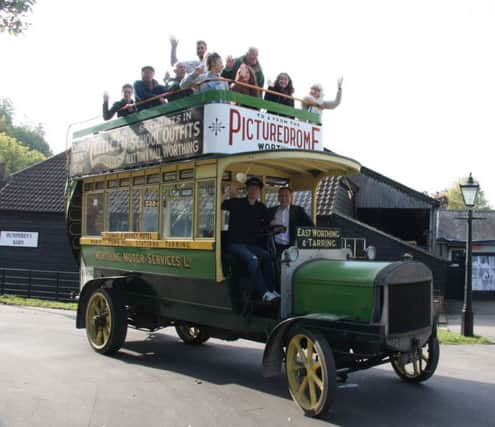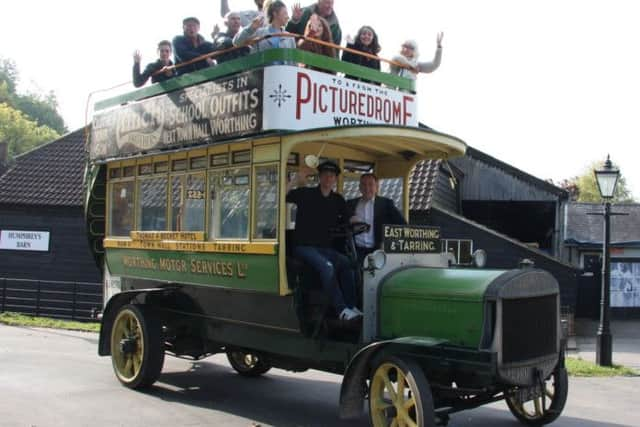Chichester: premiere of play inspired by the London buses on the western front


The piece runs at the Riverside Theatre, Chichester College from November 3-7, written by Greg Mosse and Carol Godsmark and directed by Roger Redfarn.
As Greg explains: “There are a lot of very talented performers and practitioners in stagecraft who cannot work in the profession because the numbers are limited and obviously there are only so many plays that can be taken up. It means that excellent actors – maybe lawyers or nurses – people who are at a professional level are just not getting the chance.”
Advertisement
Hide AdAdvertisement
Hide AdAnd that’s where the new Chichester Community Theatre comes in: “It gives people of professional ability and professional determination a platform to show what they can do.”


The play tells the remarkable story of the World War One London buses which went to the front during the First World War. It is the result of a collaboration between Greg and Carol.
“Chichester Festival Theatre runs courses in all sorts of performance disciplines, and for the last couple of years, I have helped them with the play-writing course. Carol came to one of these, essentially with the question: could this idea that she was putting into a novel actually be a play? We spent half an hour in our workshop trying to devise ways of putting the story on stage, and two or three weeks later, I rang up and said ‘Your idea has got to be staged! Let’s try to make the script happen! ‘She sent me a wonderful panoply of research she had already done, and out of what she had already done for the novel, we began to find a story of some fictional, but living, breathing humans.
“We have a chap from the east end of London that doesn’t have a job and then gets a job driving a London bus… and then World War One intervenes. He is persuaded, not entirely honestly by government agents, to join up and take his bus to the front.”
Advertisement
Hide AdAdvertisement
Hide AdThe interval provides the moment to change the time frame of the piece: “The first half is about life in London when the war is imminent. There are people that know it is coming, and at the end of the first Act, you have all these different circumstances coming together, pressurising Jim to leave his fiancée and go to war, which means that when Jim says at the end of the first Act ‘All change please!’, obviously it is not just the passengers that are changing, but life itself.”
After the interval, two stories are maintained – the home front and events on the war front: “We have got to keep them together.”
Not that that is Greg’s problem. He is more than happy as co-author to hand it all over to Roger the director and the company. It is the company which brings it all to life. Unlike a novelist, the dramatist needs the means to transmit his words: “After all the little revisions and final adjustments, Carol and I said to Roger ‘Is that it?’ and he said ‘yes’, and we were very happy to abandon it to its fate!
“The community is coming together in the collaborative project and it galvanises people. I have no idea what the community theatre will do next. If I was asked, I would be delighted to produce another script because it all means a lot to me.”
Tickets on www.chichestercommunitytheatre.org.uk.
Advertisement
Hide AdAdvertisement
Hide AdDon’t miss out on all the latest breaking news where you live.
Here are four ways you can be sure you’ll be amongst the first to know what’s going on.
1) Make our website your homepage
2) Like our Facebook page
3) Follow us on Twitter
4) Register with us by clicking on ‘sign in’ (top right corner). You can then receive our daily newsletter AND add your point of view to stories that you read here.
And do share with your family and friends - so they don’t miss out!
Always the first with your local news.
Be part of it.